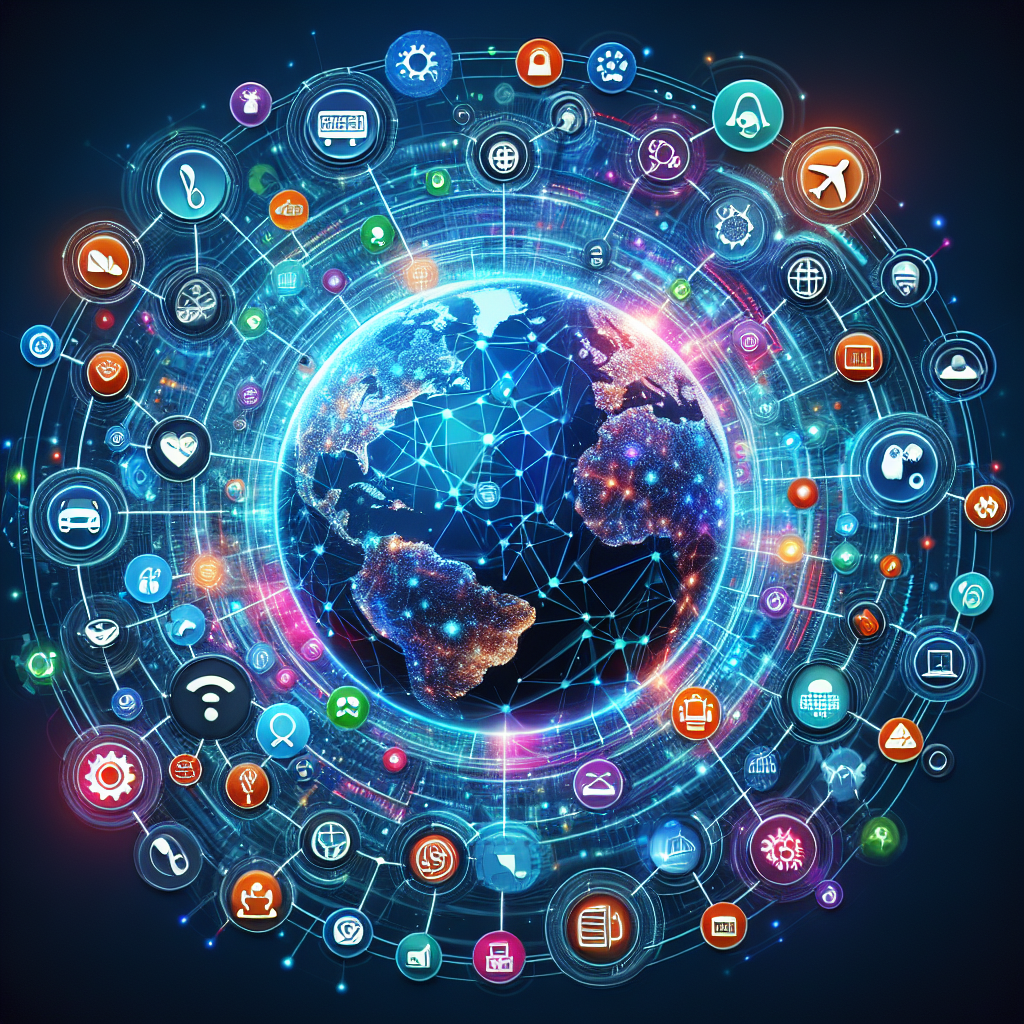Artificial General Intelligence (AGI) is a rapidly evolving technology that is transforming industries across the globe. AGI refers to machines that have the ability to perform any intellectual task that a human can do. This includes reasoning, problem-solving, learning, and understanding natural language. AGI has the potential to revolutionize the way we work, communicate, and live.
In this article, we will explore how AGI is transforming industries across the globe and the potential impact it will have on the economy, society, and the workforce.
AGI in Healthcare
One of the industries that is being transformed by AGI is healthcare. AGI has the potential to revolutionize healthcare by improving diagnosis accuracy, treatment effectiveness, and patient outcomes. AGI-powered systems can analyze vast amounts of medical data to identify patterns and trends that human doctors may miss. This can lead to earlier detection of diseases, more personalized treatment plans, and better overall patient care.
AGI can also help streamline administrative tasks in healthcare, such as scheduling appointments, managing medical records, and billing. This can free up healthcare professionals to focus on providing quality care to patients and reduce the burden of paperwork and administrative tasks.
AGI in Finance
The finance industry is another sector that is being transformed by AGI. AGI-powered systems can analyze large amounts of financial data in real-time to identify market trends, predict stock prices, and optimize investment strategies. This can help financial institutions make more informed decisions and improve their overall performance.
AGI can also help detect fraud and identify anomalies in financial transactions. By analyzing patterns and trends in financial data, AGI-powered systems can flag suspicious activities and prevent fraudulent transactions before they occur.
AGI in Manufacturing
AGI is also transforming the manufacturing industry by improving efficiency, productivity, and quality control. AGI-powered systems can automate repetitive tasks, optimize production schedules, and monitor equipment performance in real-time. This can help manufacturers reduce costs, increase output, and improve product quality.
AGI can also help manufacturers predict maintenance needs and prevent equipment failures. By analyzing data from sensors and monitoring systems, AGI-powered systems can identify potential issues before they occur and schedule maintenance proactively.
AGI in Customer Service
Customer service is another industry that is being transformed by AGI. AGI-powered chatbots and virtual assistants can provide round-the-clock support to customers, answer questions, and resolve issues in real-time. This can improve customer satisfaction, reduce response times, and lower operational costs for businesses.
AGI-powered systems can also analyze customer feedback and sentiment to identify trends and improve products and services. By understanding customer preferences and behaviors, businesses can tailor their offerings to meet customer needs and enhance the overall customer experience.
AGI in Education
AGI has the potential to revolutionize education by personalizing learning experiences, adapting to individual student needs, and improving educational outcomes. AGI-powered systems can analyze student performance data, identify strengths and weaknesses, and provide personalized recommendations for learning materials and activities.
AGI can also help teachers automate administrative tasks, such as grading assignments, tracking attendance, and managing student records. This can free up teachers to focus on providing quality instruction and support to students.
AGI in Agriculture
The agriculture industry is also being transformed by AGI. AGI-powered systems can analyze soil data, weather patterns, and crop yields to optimize farming practices, increase productivity, and reduce waste. This can help farmers make more informed decisions and improve their overall efficiency.
AGI can also help farmers monitor plant health, detect pests and diseases, and manage irrigation systems more effectively. By analyzing data from sensors and monitoring systems, AGI-powered systems can help farmers identify issues early and take corrective actions to protect their crops.
FAQs
Q: What is AGI?
A: AGI refers to machines that have the ability to perform any intellectual task that a human can do. This includes reasoning, problem-solving, learning, and understanding natural language.
Q: How is AGI different from AI?
A: AGI is a more advanced form of artificial intelligence that can perform a wide range of intellectual tasks, while AI is typically specialized in a specific task or domain.
Q: How is AGI transforming industries?
A: AGI is transforming industries by improving efficiency, productivity, and quality control. AGI-powered systems can automate repetitive tasks, optimize processes, and analyze data to make more informed decisions.
Q: What are the potential benefits of AGI?
A: The potential benefits of AGI include improved accuracy, efficiency, and productivity in various industries, as well as better decision-making and problem-solving capabilities.
Q: What are the potential risks of AGI?
A: The potential risks of AGI include job displacement, privacy concerns, security vulnerabilities, and ethical issues related to autonomy and decision-making.
In conclusion, AGI is transforming industries across the globe by improving efficiency, productivity, and decision-making capabilities. While AGI has the potential to revolutionize the way we work, communicate, and live, it also raises important questions about job displacement, privacy, security, and ethics. As AGI continues to evolve, it is important for businesses, policymakers, and society as a whole to consider the potential benefits and risks of this transformative technology.

